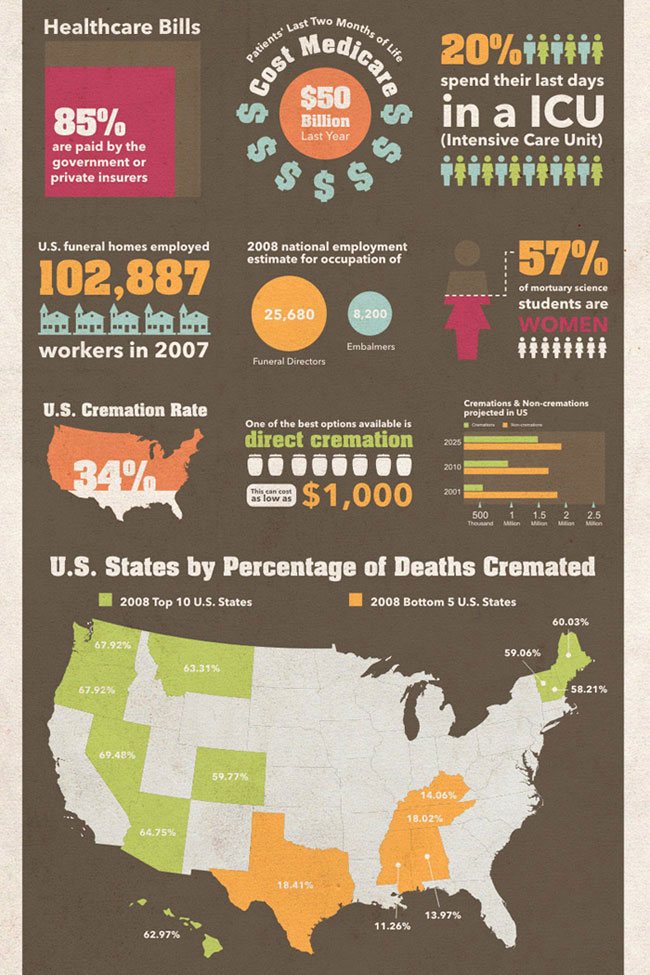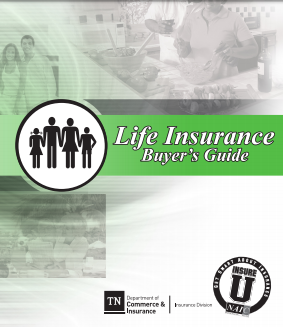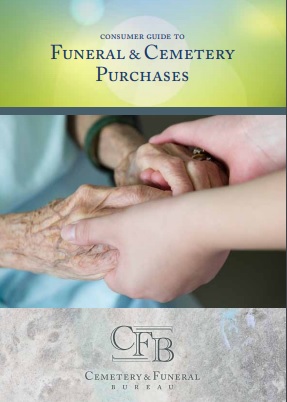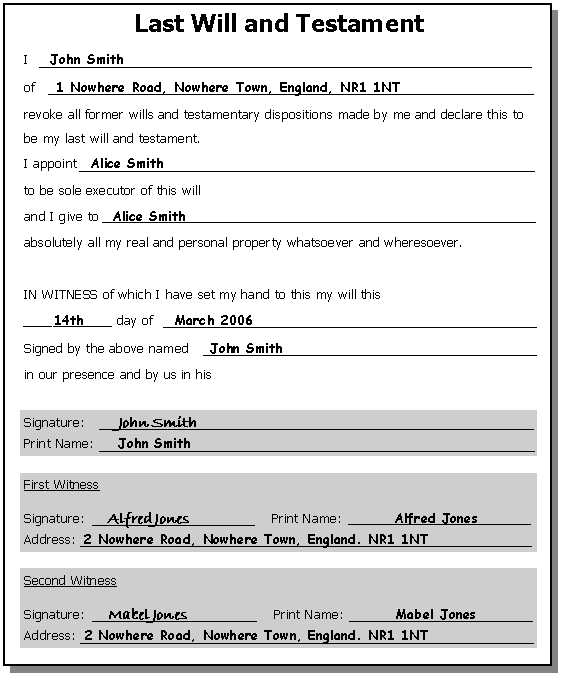Will contest
Can child contest a will if excluded – disinherited
Sample Will disinheritance clause
- For example, using a clause that states the heir will not receive any inheritance, such as,
- “I am choosing to leave no assets to my daughter, Ashley,” confirms that a child has been disinherited from a Will. Read More Law Depot.com
. - DISINHERITANCE.
- We have intentionally omitted from this Trust Agreement any provision for any of our heirs, descendants, issue, relatives, or other persons who are not named, mentioned, designated, or described in this Trust Agreement. We have intentionally omitted any person who would be a pretermitted heir under the provisions of the California Probate Code or other applicable law and those persons referred to in California Probate Code §§21600 through 21623. We generally and expressly disinherit each and every person whomsoever claiming to be and who may be determined to be our heirs at law, except as they are otherwise expressly provided for in this Trust Agreement. Law Insider.com
- Testamentary Freedom
- suggested that people would in future have to explain their reasons for why they had left money to certain parties and demonstrate tangible connections to them
- right to “reasonable provision” which is contained in the 1975 Inheritance Act. It is normally used for young children who are left out of wills, but in 2011, Mrs Ilott won £50,000 from the estate before challenging for more money. She lost in the High Court last year but succeeded in the Court of Appeal.
- This is a significant decision for charities and warring families alike.
- It underlines the sacred principle of “testamentary freedom” – your estate is yours to leave as you see fit, even if a feud with a child leads to a “punishment” disinheritance.
- If you decide to benefit a charity instead of your recalcitrant offspring, the charity’s position is now much more secure.
- “I am choosing to leave no assets to my daughter, Ashley,” confirms that a child has been disinherited from a Will. Read More Law Depot.com
Reasons to Disinherit a Child
- Estrangement
- According to legal and social custom, children and grandchildren are considered heirs to your estate. However, if you’ve become estranged from your child and are no longer in contact or have a historically bad relationship, you may wish to exclude them from your will in favour of other beneficiaries.
- Reasons for cutting out a child can range from hate, abandonment, and addictions. Other reasons for disinheritance are to provide for the child that needs it the most or deserve it the most.
- A common misconception is that the legal way to disinherit someone is to leave the sum of one dollar or some other nominal amount to the heir in your will. Leaving your child one dollar does not prevent him from contesting a will. Whatever language you include in your will, you cannot prevent an heir from filing a lawsuit against your estate. Any person who has standing and states a claim can contest a will.
- Some may say that disinheriting a child is unnatural or even immoral. * Gold Hirsch Advisors *
- Lack of Need
- Increased Need DMBlaw.CA * King Hall.com *
Considerations to leave someone out of a will?
-
- The Balance.com
- In a will contest, the drafting attorney’s file is no longer privileged upon the death of the testator.7 Many times a settlement will make sense because of the risk involved in litigating any case and also the attorney’s fees that will be expended by the estate in defending against the caveat.* King Hall.com *
- In Canada – A will makers reasons for disinheriting a child in his or her will must be valid and rationale Fuller v Fuller 2008 BCSC 702 is a familiar scenario in estate litigation. * Disiherited.com *
- Inn California children do not have a right to inherit any property from a parent. In other words, a parent can disinherit a child, leaving them nothing. * Aldavlaw.com *
- Resources & Links
- Free Advise.com
- the retirement group.com/disinheriting-an-heir
- 4 situations that should prompt you to contest a trust or will in California
- How Can I Contest a Trust in California?
- What Are Grounds for Contesting a Trust in California?
- If you were left millions in your parent’s will, but your brother or sister were left nothing, would you give them some money?
- Free Advise.com
Does it make sense to fight a will?
On what grounds?
What is contesting a will
The typical objections to the validity of a will are:
-
- The will was not properly drawn, signed, or witnessed, according to the state’s formal requirements;
- The decedent lacked mental capacity at the time the will was executed;
- Diminished Capacity –
- Competent individuals of all ages, old and young, have the right to make foolish, eccentric or idiosyncratic decisions. For better or worse, all of us are free to make bad decisions.
- What surprises most people is that the capacity to make a will, called testamentary capacity, is the lowest level of capacity in the law. All that is required is that the person making the will must,
- understand in a general way, the nature of his property
- know who are the “natural objects of his bounty,” that is, the persons who would normally be his heirs
- comprehend that he or she is making a will
- A person who has had a stroke, or is diagnosed with Alzheimer’s disease, may still have sufficient capacity to make a will even though there is some impairment of speech, some impairment of thought processes, and/or some physical impairment. The fact that a client does not know the year or the name of the President does not necessarily mean that she can not make a will. Since signing a will does not require a great deal of capacity, the fact that the next day the person does not remember the signing a will does not make the will invalid if he had the minimum required capacity the day before when he signed it.
- It is very difficult to overturn a properly made will on the basis of incapacity. The challenger of the will is usually not present when the will is signed so the challenger can give no testimony about the testator’s capacity at the time the will was signed. Plus, the challenger must overcome the testimony of the attorney, witnesses, and notary – not easy to do. Many attorneys, when expecting a challenge, build a case by having extra witnesses and interviewing the client in the presence of the witnesses before the will is signed.
Elder Abuse – Inheritance rights Hastings Law Journal
- Diminished Capacity –
- There was fraud, force, or undue influence; or
- Undue influence means a person has exerted so much control over another individual, that the individual no longer has free will to make decisions for themselves. In cases of undue influence, the person being taken advantage of tends to be elderly and/or vulnerable due to illness. Generally, a relative or caregiver develops a close relationship with the individual while isolating them from other friends and family. The relative or caregiver will accompany the individual to discuss estate planning with an attorney, coach them in what to say, or even directly advise the attorney regarding the creator’s wishes (often in their own favor). The attorney may not be able to tell that the creator is being pressured or manipulated; however, most competent estate planning attorneys will ask the relative or caregiver to leave the room. After meeting privately, if the attorney is comfortable that the creator is not under undue pressure, they may proceed with preparing the will documents.
- Learn More==> 146 Page Report on Court Website
- Nolo
- Undue Influence
- is the use of coercion to force a testator to make a will. The legal definition requires that the testator’s desires be replaced with the desires of another by pressure or threat. The testator is not incompetent, but the testator is left in the position of feeling “I don’t want to do this, but I must.” Holding a gun to the testator’s head is a clear undue influence.
- Remember, no one has a right to inherit. Grandpa is entirely free to leave all his wealth to charity, or even to a stranger, so long as he has the testamentary capacity and is not under undue influence.I
- What’s “duress?” Might that include a chronic or terminal illness bothering someone and affecting their thinking? Not just dementia? Doctors orders to take medications and treatments that have bad side effects? Families support to follow doctors orders?
- What’s “duress?” Might that include a chronic or terminal illness bothering someone and affecting their thinking? Not just dementia? Doctors orders to take medications and treatments that have bad side effects? Families support to follow doctors orders?
- Do you believe your loved one’s will does not accurately reflect their wishes?
- California law, a will can be invalidated if it was written and executed while the testator was under duress. State law defines duress as one of the following:
- The person, or the person’s spouse, ancestor, descendant, or adopted child was unlawfully confined
- The person’s property was unlawfully detained
- The person was confined through legal means
- The confinement was a result of fraud, harassment, or oppression
- A person is under duress feels forced to execute a will containing provisions that the person would otherwise not wish to include in the document.
- Menace occurs when the person creating the will was under threat of:
- Duress
Unlawful and violent injury to himself or his property
Injury to his character grossman law.net/duress-and-menace-pursuing-will-contest - Determining duress is somewhat subjective in that the person who was the victim of duress must have a real belief in the threat of wrongdoing when he or she changes the will.
- the free will of the testator is interfered with ny estates lawyer.com/duress-purposes-will-contest
- Undue influence occurs when a wrongdoer exerts influence over a testator sufficient to overcome the testator’s free will and cause the testator to make a bequest that would not otherwise have been made.
- Duress is procured by the threat or the performance of a wrongful act that coerces the testator.
- Classic undue influence is a form of psychological or mental coercion, where the motive of the wrongdoer is an element of the proof; it is often proven by circumstantial evidence, by an inference created by a confidential relationship and the result of a slow and gradual gaining of control of the testator by a play on the emotions, fears and hopes of a person often too weak, mentally and physically, to resist.
- “Duress,” does not depend upon the motive of the wrongdoer, but rather upon the subjective fears of the testator, and is often proven by the doing of a wrongful act of violence and/or the menace or the threat that the act will be repeated.
- Duress
- Undue influence means a person has exerted so much control over another individual, that the individual no longer has free will to make decisions for themselves. In cases of undue influence, the person being taken advantage of tends to be elderly and/or vulnerable due to illness. Generally, a relative or caregiver develops a close relationship with the individual while isolating them from other friends and family. The relative or caregiver will accompany the individual to discuss estate planning with an attorney, coach them in what to say, or even directly advise the attorney regarding the creator’s wishes (often in their own favor). The attorney may not be able to tell that the creator is being pressured or manipulated; however, most competent estate planning attorneys will ask the relative or caregiver to leave the room. After meeting privately, if the attorney is comfortable that the creator is not under undue pressure, they may proceed with preparing the will documents.
- The will was a forgery.
- VIDEO Will Contests Basic Understanding
FAQ
- What powers does the trustee have to hire attorneys to defend a will contest?
- What power does he have to settle the case and not go through the hassle of a protracted court case? Especially with family members.
- A trust is merely a right in property held in a fiduciary relationship by one party, called the “trustee,” for the benefit of another party, called the “beneficiary.”
- The overwhelming weight of authority holds that a trust, under state law, does not have the capacity to sue or be sued in its own name
- Typically when a trust is sued, a trustee is authorized to use trust funds to defend the lawsuit. Trustees have a fiduciary duty to a trust. This means that they have a duty of loyalty and reasonable care when acting on behalf of the trust, and this can include the responsibility to defend the trust in litigation. romanosumner dot com
- Probate Code section 16249 provides that a “trustee has the power to prosecute or defend actions, claims, or proceedings for the protection of trust property and of the trustee in the performance of the trustee’s duties.” Likewise, Probate Code section 16247 authorizes trustees “to hire…attorneys…even if they are associated or affiliated with the trustee, to advise or assist the trustee in the performance of administrative duties.” Indeed, most trust agreements include boilerplate language authorizing the same.
- courts have held that because the existence of the trust is not being challenged, the trustee should remain neutral.
- The courts have reasoned that in these cases, the dispute is one among the beneficiaries or potential beneficiaries—essentially, who gets what? Therefore, the trustee is bound by his or her duty of impartiality to serve as a neutral placeholder while the beneficiaries battle it out at their own cost.
- Disputes between trustees and beneficiaries can be traumatic and divisive and generally cast a pall over any future meaningful relationship. lexisnexis.com/Trust_disputes
- Generally, a trustee has an affirmative obligation to defend a trust that is being challenged and may draw on trust funds in doing so.
- What if someone had a share in the will and finally spoke – stood up about being abused and then got disinherited?
- standing means they are an heir or prior beneficiary of yours and they have a property interest they will lose under your Trust or Will. For example, a child who is disinherited can sue because if you had no Trust or Will, that child would have received a portion of your estate. But a second cousin, twice removed, cannot sue unless that person would have received something without the newly created Trust or Will.
- No one has an absolute right to inherit your property under California law (unless you entered into a contract to leave your estate to someone)
- a relative must assert that you either lacked capacity at the time you created the Trust or Will, or you were unduly influenced to do so (or subject to fraud, menace, or duress).
- certificate of independent review to confirm that the plan represents the settlor’s intent.
- provide a monetary gift to incentivize your relative not to fight your estate plan through the use of a no-contest clause. No contest clauses (originally called in terrorem clauses, Latin for “about fear”) are meant to prevent Trust and Will contests. The idea being that anyone who challenges your Trust or Will without probable cause and loses will also lose all inheritance rights under the Trust or Will. inheritance-theft .
- Do you believe your loved one’s will does not accurately reflect their wishes?
- Occasionally, bad behaviour on the part of the deceased is recognised for what it is. In 2014 – unusually given a cornerstone of British law is the right to leave your property to whomever you wish – a judge found in favour of Heather Ilot, awarded £164,000 who challenged her mother’s will. Melita Jackson had explicitly disinherited Heather, leaving considerable property to animal charities. Their conflict had started when Heather was 17 and ran away with her boyfriend, whom Melita disapproved of. Melita never forgave her even though Heather went on to marry Nicholas who is still her husband and father of their five children. The judge accepted the barrister’s description of Melita as an “unreasonable, capricious and harsh mother”.
- surprising numbers of people seem set on creating emotional havoc, either because they are not clear about their wishes or because they are engaging in emotional warfare. “I come across a lot of people disinheriting their children. It’s often because the kids don’t bother with them and usually because there’s been a huge falling out and they don’t speak any more.
- Because of house price increases, the higher value of estates tempts damaged people to use wills as weapons in a fight. Higher values also make those disinherited more inclined to challenge wills
- “anything could go wrong” in terms of respecting the wishes of the deceased or the havoc created by a vicious will. https://www.theguardian.com/lifeandstyle/2016/nov/19/when-wills-go-bad-it-was-the-cruellest-thing-you-could-imagine
- Supreme Court has now ruled that Heather’s award should be reduced to £50,000
- confirming the vital and basic principle that individuals should have the right to choose who benefits from their estate when they die
- Others however, remain disappointed and somewhat puzzled that Heather received any provision when Mrs Jackson had made her wishes so explicitly clear. brachers.co.uk
- granted a third of that money on the grounds that her mother did not leave “reasonable provision” for her in the will.
- The Court of Appeal ruled that Mrs Ilott would otherwise face a life of poverty because she was on benefits and could not afford to go on holiday or buy clothes for her children.
- The fact that Mrs Jackson had little connection to the charities to which she left her money played a part in the ruling, the judges said.
- As foreshadowed by last Autumn’s case of Danielle Ames, this ruling makes it clear that, whatever the background circumstances, a disinherited child can expect little if any relief from the courts.
- Although still far from certain, the law is now a lot clearer, which will hopefully reduce the amount families waste on legal fees in fighting over these issues.
- the estrangement between the two women must have meant that Mrs Ilott must have had little expectation of an inheritance from her mother.
- wellwritten.com
- What might an executor or trustee do if someone is excluded from the will, but they should have had a share?
- we asked that question in Google and here’s our selection of sites that had informative answers:
- squirrelers com/left-out-of-a-will/
- Decide on a number, maybe $25,000 or $50,000, more if you’re feeling generous, and if he accepts it, have him sign a release that he’s done. He very well could prefer a gift now instead of starting expensive, lengthy litigation, especially with the law on your side. A bird in the hand.
- Invite him go through your father’s things with you for mementos, and offer some furniture https://www.miamiherald.com/news/business/article2506235.html
- **********************
- our father. He was very controlling, argumentative and unforgiving — at the best of times.
- Aside from leaving behind an awful lot of money, your father appears to have done in death what he did in life: Cause division and acrimony, only this time he has passed that mantle on to you. It’s sad and frustrating — even from the view of a third party — that he didn’t use his last days to reflect on his life and use his death to heal any ill-will toward his children. Instead, he skipped town (metaphorically speaking) and left a new mess for you. I don’t envy you your task and I can understand how your sister’s stance would make you less — not more — likely to give any of it away.
- It’s a familiar tale. Shakespeare’s King Lear made a critical mistake by excluding his faithful daughter and giving his land to his two ungrateful daughters.
- Heirs typically have nine months to “disclaim” inheritance or part of their inheritance, which can help you avoid gift tax (if you were to give your siblings money), but you should check the will to see what happens to money/assets that have been disclaimed.
- What do you think your father should have done? That will give you your answer. https://www.marketwatch.com/story/my-father-excluded-my-siblings-from-his-will-2015-01-30 this is an emotionally fraught time for the children of the deceased, it can also be an opportunity for the siblings to come closer together as they take care of their parents’ legacy. There is no greater pleasure for the souls of the deceased parents than when they see their children living in peace and harmony together. And G‑d’s blessing rests where there is peace. Chabad.org
- If one said before his death: “This, my son, shall have no portion in my estate,” or if he appointed a stranger as his heir in the place of his legal heirs, his declaration is void, for this is against the prescription of the Bible. Jewish Encyclopedia.com *
- Where There’s A Will…: Law and Emotion in Sibling Inheritance Disputes
- Menace occurs when the person creating the will was under threat of:
- Duress Unlawful and violent injury to himself or his property Injury to his character grossman law.net/duress-and-menace-pursuing-will-contest/
- Determining duress is somewhat subjective in that the person who was the victim of duress must have a real belief in the threat of wrongdoing when he or she changes the will.
- the free will of the testator is interfered with
- Undue influence occurs when a wrongdoer exerts influence over a testator sufficient to overcome the testator’s free will and cause the testator to make a bequest that would not otherwise have been made.
- Duress is procured by the threat or the performance of a wrongful act that coerces the testator.
- Classic undue influence is a form of psychological or mental coercion, where the motive of the wrongdoer is an element of the proof; it is often proven by circumstantial evidence, by an inference created by a confidential relationship and the result of a slow and gradual gaining of control of the testator by a play on the emotions, fears and hopes of a person often too weak, mentally and physically, to resist.
- “Duress,” does not depend upon the motive of the wrongdoer, but rather upon the subjective fears of the testator, and is often proven by the doing of a wrongful act of violence and/or the menace or the threat that the act will be repeated.
- Occasionally, bad behaviour on the part of the deceased is recognised for what it is. In 2014 – unusually given a cornerstone of British law is the right to leave your property to whomever you wish – a judge found in favour of Heather Ilot, awarded £164,000 who challenged her mother’s will. Melita Jackson had explicitly disinherited Heather, leaving considerable property to animal charities. Their conflict had started when Heather was 17 and ran away with her boyfriend, whom Melita disapproved of. Melita never forgave her even though Heather went on to marry Nicholas who is still her husband and father of their five children. The judge accepted the barrister’s description of Melita as an “unreasonable, capricious and harsh mother”.
- surprising numbers of people seem set on creating emotional havoc, either because they are not clear about their wishes or because they are engaging in emotional warfare. “I come across a lot of people disinheriting their children. It’s often because the kids don’t bother with them and usually because there’s been a huge falling out and they don’t speak any more.
- Because of house price increases, the higher value of estates tempts damaged people to use wills as weapons in a fight. Higher values also make those disinherited more inclined to challenge wills
- “anything could go wrong” in terms of respecting the wishes of the deceased or the havoc created by a vicious will. https://www.theguardian.com/lifeandstyle/2016/nov/19/when-wills-go-bad-it-was-the-cruellest-thing-you-could-imagine
- Supreme Court has now ruled that Heather’s award should be reduced to £50,000
- confirming the vital and basic principle that individuals should have the right to choose who benefits from their estate when they die
- Others however, remain disappointed and somewhat puzzled that Heather received any provision when Mrs Jackson had made her wishes so explicitly clear. brachers.co.uk
- granted a third of that money on the grounds that her mother did not leave “reasonable provision” for her in the will.
- The Court of Appeal ruled that Mrs Ilott would otherwise face a life of poverty because she was on benefits and could not afford to go on holiday or buy clothes for her children.
- The fact that Mrs Jackson had little connection to the charities to which she left her money played a part in the ruling, the judges said.
- suggested that people would in future have to explain their reasons for why they had left money to certain parties and demonstrate tangible connections to them
- right to “reasonable provision” which is contained in the 1975 Inheritance Act. It is normally used for young children who are left out of wills, but in 2011, Mrs Ilott won £50,000 from the estate before challenging for more money. She lost in the High Court last year but succeeded in the Court of Appeal.
- telegraph.co.uk
- This is a significant decision for charities and warring families alike.
- It underlines the sacred principle of “testamentary freedom” – your estate is yours to leave as you see fit, even if a feud with a child leads to a “punishment” disinheritance.
- If you decide to benefit a charity instead of your recalcitrant offspring, the charity’s position is now much more secure.
- As foreshadowed by last Autumn’s case of Danielle Ames, this ruling makes it clear that, whatever the background circumstances, a disinherited child can expect little if any relief from the courts.
- Although still far from certain, the law is now a lot clearer, which will hopefully reduce the amount families waste on legal fees in fighting over these issues.
- the estrangement between the two women must have meant that Mrs Ilott must have had little expectation of an inheritance from her mother.
- wellwritten.com
- Successfully contesting a will is usually difficult.
- Generally, a child must show one of four conditions exist.
- Maybe the will was not property executed. Most states require two witnesses.
- Perhaps the father was not competent when he signed the will. Medical records and doctor testimony can show mental disease.
- Duress or undue influence is another method to challenge a will. For example, a nurse threatens to withhold care unless she is made a beneficiary in the patient’s will.
- Then there’s fraud. Perhaps someone tricked the father into signing a will. legalzoom contesting-estranged-father-25613.html
- More on Undue Influence https://www.legalmatch.com/law-library/article/undue-influence-in-will-drafting.html
- Diminished Capacity –
- Competent individuals of all ages, old and young, have the right to make foolish, eccentric or idiosyncratic decisions. For better or worse, all of us are free to make bad decisions.
- What surprises most people is that the capacity to make a will, called testamentary capacity, is the lowest level of capacity in the law. All that is required is that the person making the will must,
- understand in a general way, the nature of his property
- know who are the “natural objects of his bounty,” that is, the persons who would normally be his heirs
- comprehend that he or she is making a will
- A person who has had a stroke, or is diagnosed with Alzheimer’s disease, may still have sufficient capacity to make a will even though there is some impairment of speech, some impairment of thought processes, and/or some physical impairment. The fact that a client does not know the year or the name of the President does not necessarily mean that she can not make a will. Since signing a will does not require a great deal of capacity, the fact that the next day the person does not remember the signing a will does not make the will invalid if he had the minimum required capacity the day before when he signed it.
- . Undue influence is the use of coercion to force a testator to make a will. The legal definition requires that the testator’s desires be replaced with the desires of another by pressure or threat. The testator is not incompetent, but the testator is left in the position of feeling “I don’t want to do this, but I must.” Holding a gun to the testator’s head is a clear undue influence.
- Remember, no one has a right to inherit. Grandpa is entirely free to leave all his wealth to charity, or even to a stranger, so long as he has the testamentary capacity and is not under undue influence.
- It is very difficult to overturn a properly made will on the basis of incapacity. The challenger of the will is usually not present when the will is signed so the challenger can give no testimony about the testator’s capacity at the time the will was signed. Plus, the challenger must overcome the testimony of the attorney, witnesses, and notary – not easy to do. Many attorneys, when expecting a challenge, build a case by having extra witnesses and interviewing the client in the presence of the witnesses before the will is signed.
- Elder Abuse – Inheritance rights https://repository.uchastings.edu/cgi/viewcontent.cgi?article=3433&context=hastings_law_journal
- The TV Show “The Unit” Season 2 Episode 18 https://www.imdb.com/title/tt0964487/
Tiffy finds a rare coin that is worth a fortune when she buys an article of clothing at a consignment shop. She then questions what to do with it. https://www.rottentomatoes.com/tv/the_unit/s02/e18 ************** https://www.amazon.com/gp/video/detail/B000WG6BQO/ref=atv_dp- Tiffany wanted to buy a Paratrooper Patch at a consignment shop. On her way there her friend Kim loaned her money for shopping and said that if she found anything valuable they would split it.
- There was a war widow who was taking in things to the consignment shop. Tiffany saw the garrison cap and bought it from her, just for the paratrooper patch. Tiffany then went into the shop and wanted to give a commision to the shop as the lady was on her way inside. The shop owner said forget it. The shop owner explained that sometimes soldiers put a coin in the cap right behind the patch so they would have a blackjack in case of trouble in a bar. Tiffany took the coin to a dealer and he offered $900. Tiffany’s daughter looked it up on the Internet and found it might be worth $100k. Tiffany then went to a dealer in the next town over and he offered $87k. She then had a struggle of conscience as to how much she should share with Kim, the widow, the shop, etc.
- She went to her clergy who said she was under no legal obligation and that her book on investments said so. Clergy also said there was “another book” too. The TV panned to the Bible.
- In the end, the dealer who offered $87k wasn’t really a legitimate dealer. He was just outside of the stall and looked like one. The legitimate dealer had gone home early for the weekend. So, it didn’t matter about giving $$$ to her friends. She got swindled.
- The Video below is from YouTube. Amazon has better clarity and shows full screen. You get what you pay for…
Find an Attorney
- Legal Match
- Findlaw.com
- American Bar Association
- Attorney Search Network
- Follow the links on this webpage. Many of them go to articles on Attorney Websites
- Also, see our appeals webpage
- Medi Cal Contact
Instant Term Life Insurance Quote #naaipquote
- Schedule Zoom consultation
- Tools - Calculator to help you figure out how much you should get
- How much life insurance you really need?
Life Insurance Buyers Guide
Funeral Guide PDF
- chevra kadisha.com Traditional Jewish Burial
- Basic Laws of Cemeteries Stimmel Law *
- Cemeteries §8100 to 9703
- Family Interment Plots [8650 - 8653]
- Sale of Plots [8570 - 8574]
- Can you sell or transfer a cemetery plot?
- Yes in Illinois Illinois Cmptroller.gov *
- Can you sell or transfer a cemetery plot?
Brother - Sister - Sibling Side Pages Subpages
- View our website with your Desktop or Tablet for the most information
CA Statutory #Will
Steve Video on CA Statutory Will

Please excuse the sound quality... it gets better after the first 20 seconds
- Our Webpage on Wills
-
Nolo.com Sample Will 11 page pdf
-
Nolo - Quicken WillMaker & Trust $90
- nolo.com/online-will
- nolo.com/quicken-willmake






